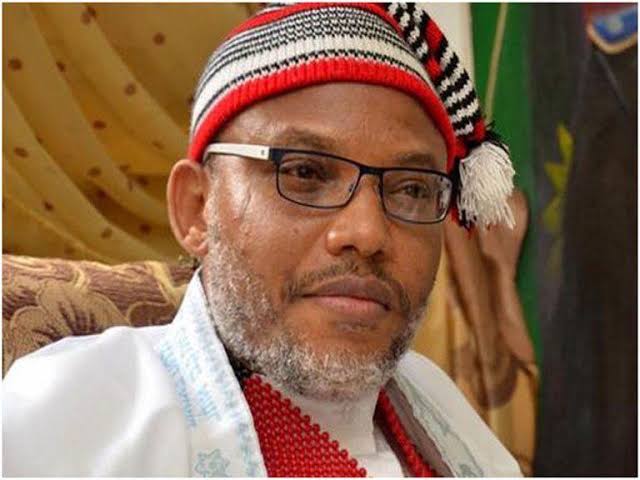The Supreme Court is poised to determine the fate of Nnamdi Kanu the detained leader of the Indigenous People of Biafra (IPOB), on Friday. This comes as the Federal Government appeals a Court of Appeal judgment that dismissed the treasonable felony charges against Kanu.
The Appeal Court not only quashed the charges but also ordered Kanu’s release, citing his alleged unlawful rendition back to the country by the Federal Government after he purportedly jumped bail.
In this legal showdown, the Federal Government seeks to overturn the appellate court’s decision, while Kanu urges the Supreme Court to uphold his acquittal and discharge.
On October 5, 2023, a five-member panel, led by Justice Kudirat Kekere-Ekun, fixed the judgment date after final submissions and brief adoption by Tijani Gazali (SAN), counsel to the Federal Government, and Prof. Mike Ozekhome (SAN), Kanu’s lead counsel.
Gazali, in his submission, urged the Supreme Court to allow the appeal, set aside the Appeal Court’s judgment, and affirm the Federal High Court’s decision, stating that Kanu should stand trial for the charges that the Appeal Court had quashed. He also called for the dismissal of Kanu’s cross-appeal.
Ozekhome, on the other hand, urged the Supreme Court to dismiss the government’s appeal with punitive costs and uphold Kanu’s cross-appeal, emphasizing the need for substantial justice. He called attention to his client’s prolonged detention since June 29, 2021, despite the Appeal Court’s order for his release.
Ozekhome urged the court to use this case as an opportunity to demonstrate that no government should infringe on citizens’ rights, citing the precedent of Ojukwu v. Lagos State.
The Court of Appeal in Abuja, in its October 13, 2022 judgment, criticized the Federal Government’s handling of Kanu’s return and quashed the remaining charges in the treasonable felony case.
The court found fault with the government’s violation of rules during Kanu’s arrest in Kenya and concluded that the government breached international laws by resorting to self-help rather than filing an extradition application in Kenya.
Before the judgment could be executed, the Federal Government sought a stay of execution from the Court of Appeal, which was granted pending the determination of its appeal against the judgment. Notably, Justice Binta Nyako of the Federal High Court had earlier struck out eight counts from the original charge against Kanu, leaving seven, which the Court of Appeal later quashed in its judgment
